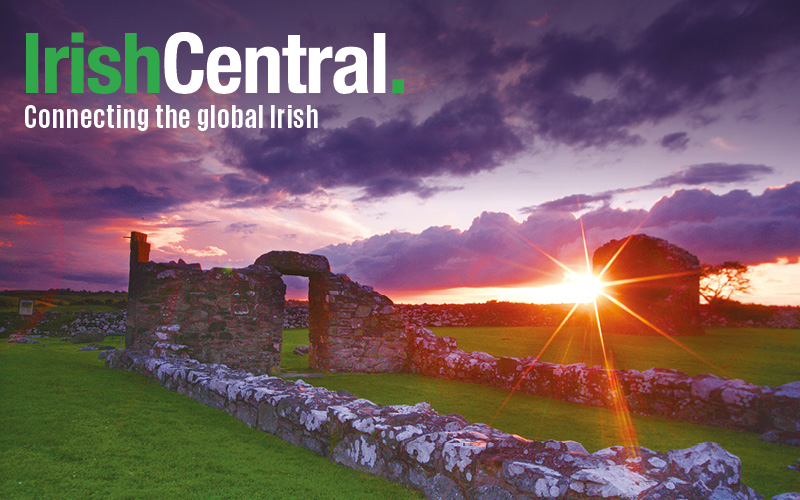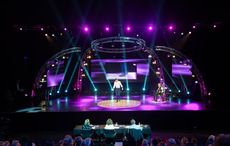In the Opinion & Analysis section of this past weekend’s Irish Times, there is a piece by columnist Donald Clarke, entitled, “Americans, if you want the full Irish, take it.” It is an attack on this website and on Irish America, or at least certain sections of Irish America.
Mr. Clarke cynically starts by telling his readers that “I just adore IrishCentral,” which he describes as “a little corner of the internet where the air is permanently soft and lilting melodies underscore every homesick pang.“
The site, he says, “provides endless succor to rubicund men in green blazers throughout the United States.”
A little fact checking might have helped out. Actually, the majority of the one million monthly unique readers of the site are female and are in the 25-44 bracket, according to Comscore and Google Analytics.
Mr. Clarke then takes a few pot shots at features on IrishCentral.
He eventually comes to the one IrishCentral story that he does approve of. Unsurprisingly, he likes the recently published “Top 10 reasons why some Irish-Americans have no real clue about Ireland.”
He notes that the story engendered a vigorous debate in the comments section on defining “Irishness.” Mr. Clarke devotes most of the rest of the column to comprehensively debunking the “myth” that Irish-Americans can define themselves as Irish. He employs the caricatures of the “eighth generation O’Hara” and the bar stool republican in Queens to concretise what he is really getting at. Mr. Clarke has little use for Irish America or Irish-Americans.
As an Irish-American living in Ireland, the question of defining “Irishness” is one I am often confronted with. When people on either side of the Atlantic ask me what I consider myself to be, I somewhat cautiously reply that I am a bit of both. My caution stems from my cognisance of the extraordinarily narrow definition of “Irishness” that a vocal minority here in Ireland subscribes to.
----------------
Read more:
Obama campaign corrects four leaf clovers to shamrocks
Irish sayings, proverbs and prayers for St. Patrick's Day
----------------
In the eyes of this vocal minority – despite the fact that I have an Irish surname and hold an Irish passport through ancestry; despite the fact that I have Irish relations with whom I am close; despite the fact that my Irish-American political family has a strong track record of advocacy on Ireland’s behalf; despite the fact that I have worked, paid taxes and voted here for more than a decade; despite the fact that I am married to an Irish woman; despite the fact that I closely monitor and talk and write knowledgeably about Irish politics and current affairs; and despite the fact that I follow Irish sports – I cannot, nor will I ever be able to, identify myself as Irish.
For Mr. Clarke and all too many others in the small coterie of disproportionately influential people in Dublin who shape the contours of Ireland’s civic discourse, the notions that there is an Irish America and that there are people in the United States who can identify themselves as Irish are preposterous. While Mr. Clarke chooses the “eighth generation O’Hara” as the poster boy for Irish America, I can just as easily point to a “first generation Naughton.” He’s a good friend who was born in Boston to a father from east Galway and a mother from Connemara and raised in the Irish-American enclave of East Milton, Massachusetts. He is an Irish citizen by birth, travels on an Irish passport, visits Ireland regularly to see his aunts, uncles and first cousins in the west of Ireland and proposed to his now wife on Bray Head in Co. Wicklow. The question is not how can he be considered Irish, but how can he not?
Mr. Clarke would surely say that his Boston birth and upbringing mean that Naughton is American, period. It’s just not that simple. Given Ireland’s long and tragic history of forced emigration, it is both folly and an affront to those displaced from this small island to deny that emigrants and their offspring can still identify themselves as a part of it. As such, Mary Robinson was right to use her presidency as a bully pulpit to reach out to these millions of people who comprise the Irish diaspora.
Most of Mr. Clarke’s ilk would begrudgingly say that Irish America and Irish- Americans, as much as they despise the idea of both, have to be endured because of what might be in it for Ireland. Recent history shows that there has been a lot in it. From the Irish-Americans who convinced the Clinton administration to intervene in the northern peace process, to those who have brought multinational companies and thousands of jobs “home,” to those spearheading various cultural and educational initiatives that benefit both of our countries, Ireland’s longstanding and ongoing efforts to foster a special relationship with its diaspora in the United States have paid significant dividends.
The overwhelming majority of people in Ireland recognize this reality and cherish the special relationship they have with their American cousins. They good naturedly put up with the, at times, over the top “paddywhackery” and the admittedly embarrassing behavior of some visiting Irish-Americans. But a vocal minority can’t bring themselves to grin and bear it. They refuse to accept that Americans of Irish descent can feel such a special connection to their ancestral home. Notwithstanding the fact that many Irish-Americans want to act affirmatively on their heartfelt connection, this vocal minority has no use for them.
They will never recognize a Donnelly or a Naughton as one of their own. In fact, as Mr. Clarke’s column makes clear, this vocal minority will heap scorn on the very idea of it. They aren’t shy about making it known how they feel about us. So I won’t be shy about letting them know, in polite terms, how I feel about them.
They are self-important. They are small-minded. They are smug. They are snobbish. And they are wrong.
Larry Donnelly is a Boston attorney who has lived and worked in Ireland since 2001. He is a Law Lecturer at NUI Galway.




Comments